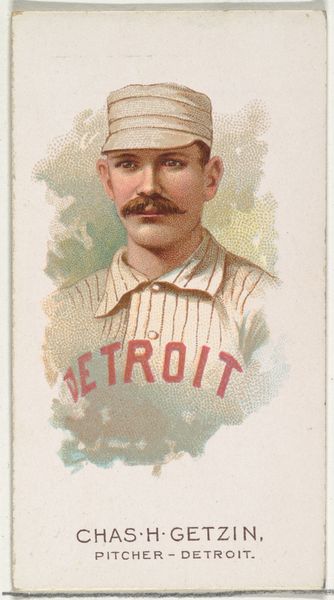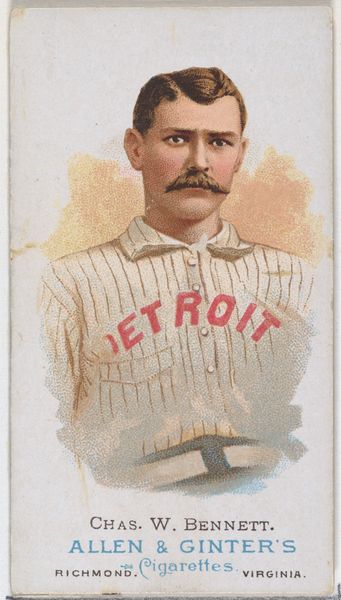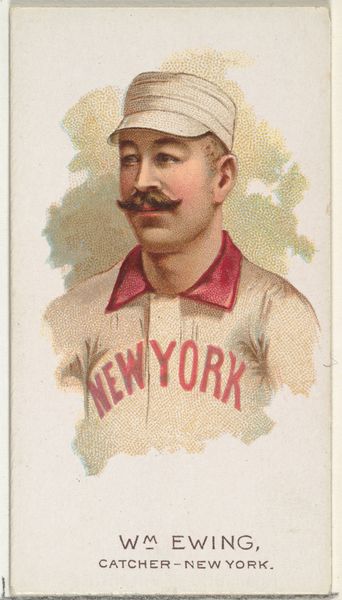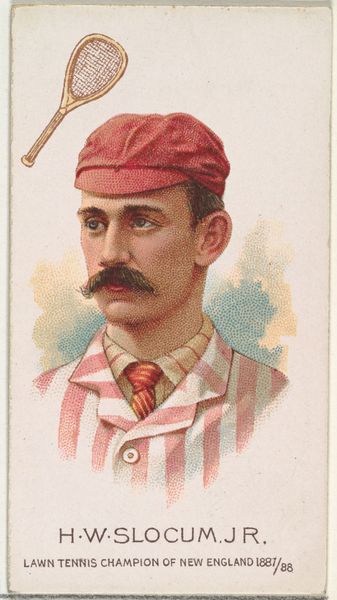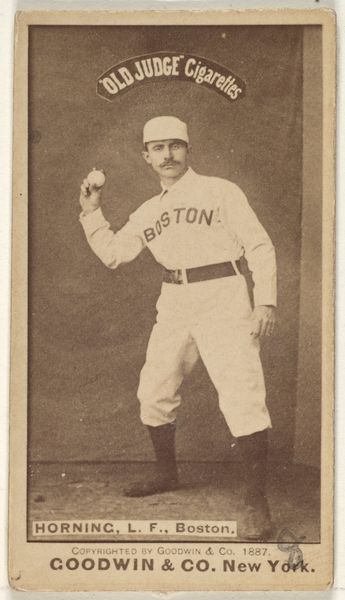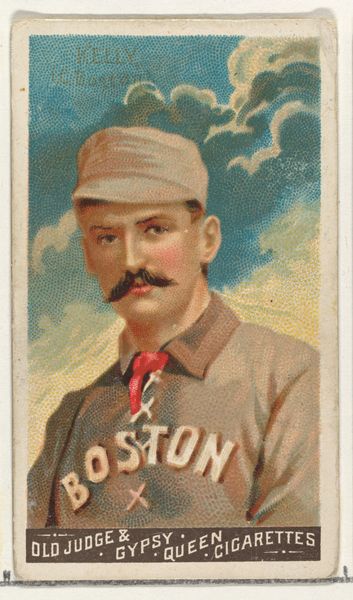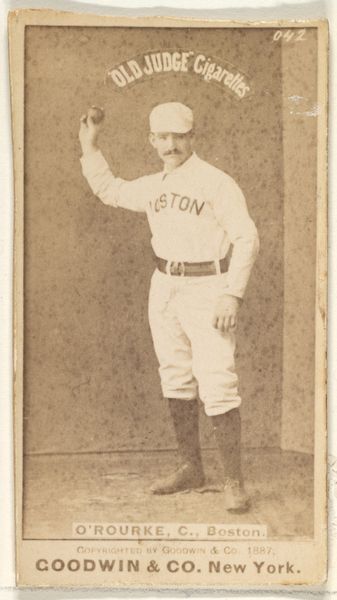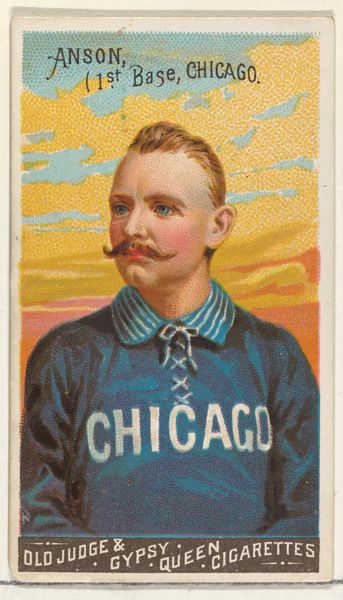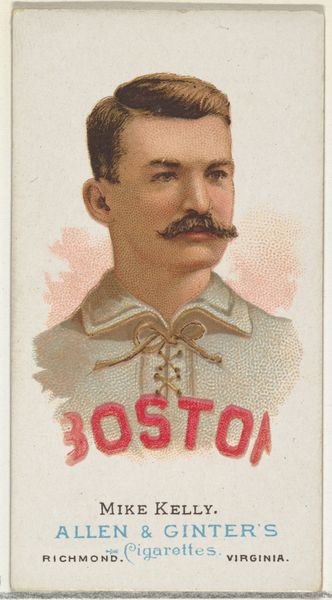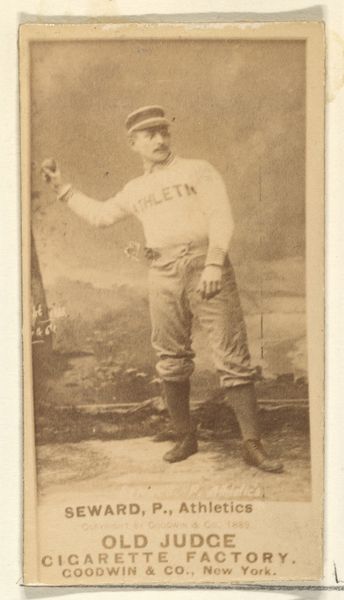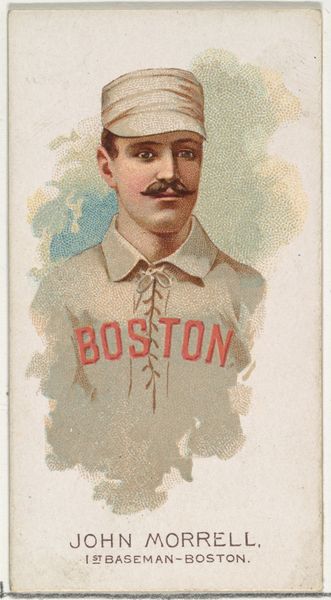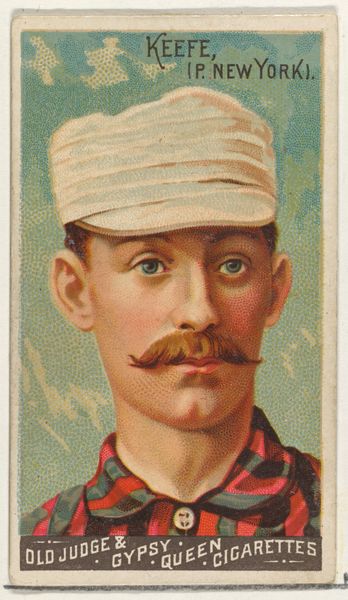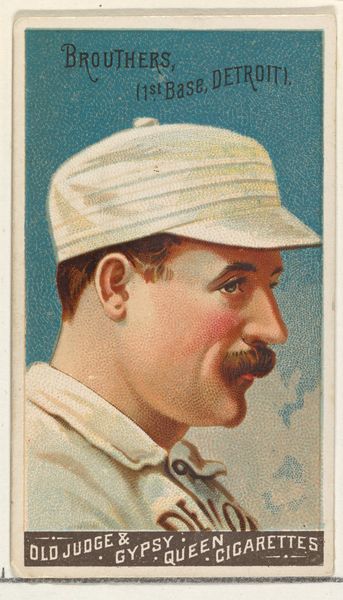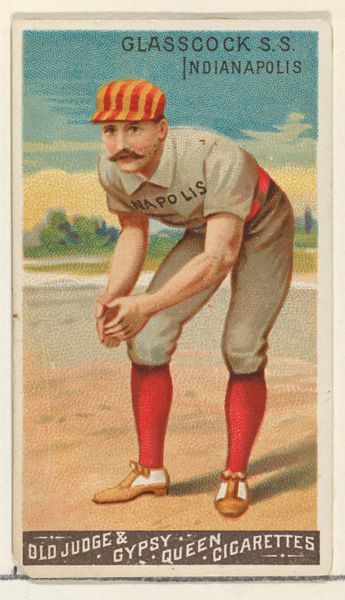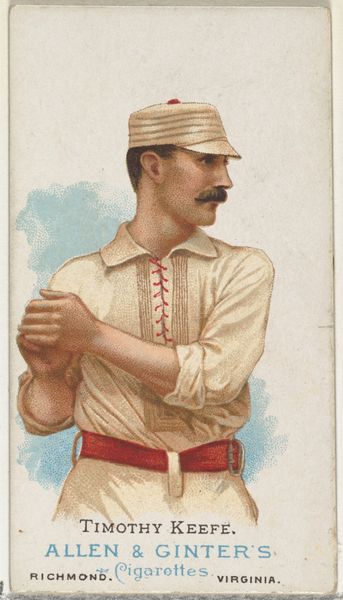
Charles H. Getzin, Pitcher, Detroit, from World's Champions, Second Series (N43) for Allen & Ginter Cigarettes 1888
0:00
0:00
drawing, coloured-pencil, print
#
portrait
#
drawing
#
coloured-pencil
# print
#
impressionism
#
coloured pencil
#
genre-painting
Dimensions: Sheet: 2 15/16 x 3 1/4 in. (7.4 x 8.3 cm)
Copyright: Public Domain
Curator: This is an 1888 baseball card featuring Charles H. Getzin, a pitcher for Detroit. It was part of the "World's Champions" series, N43, produced by Allen & Ginter Cigarettes. Editor: The pastel shades and divided composition give this small card a feeling of wistful nostalgia. I notice Getzin’s face, almost austere, rendered with a coloured pencil that evokes a bygone era. Curator: Consider the context – Allen & Ginter were capitalizing on the immense popularity of baseball, using these cards as marketing tools. Cigarette cards like these democratized portraiture, bringing images of famous athletes to a wider audience. The medium itself – a relatively cheap, mass-produced print – speaks to the burgeoning consumer culture of the late 19th century. Editor: Baseball players of the era stood as symbolic figures, exemplifying ideals of strength, perseverance, and teamwork. That red “Detroit” plastered on the shirt—not just identifying the team, but practically branding this player, turning Getzin into a visual signifier for a whole city. Curator: And the means by which that symbol was disseminated! These cards, included in cigarette packs, highlight a specific intersection: leisure culture built around spectator sports entwined with the detrimental effects of tobacco use. It reveals how desire was manufactured and distributed in late 19th-century America. Editor: Those team colors emblazoned across his chest… think about what "Detroit" represented then, during the rise of industry, the promises of the American dream, contrasted with the challenges faced by its working class. This small picture captures grand social narratives. Curator: Exactly! This isn't just about sports or art. It's about manufacturing aspirations, about turning figures like Getzin into consumable commodities. Look at how his likeness was reproduced en masse, directly linking his image, his fame, to a product people ingested daily. The material and image create a kind of historical fingerprint, leading back to industrial strategies. Editor: Looking closely now, the romantic scene behind the player also presents cultural identity. Banners of a far-off "Droit" and "Ila" point to a place with identity and roots—with a nostalgic flair for a far-off and somewhat inaccessible past. A yearning for stability. Curator: This small card offers an extraordinary look at the confluence of popular culture, manufacturing, and marketing, offering a complex picture of its time. Editor: Indeed. A glimpse of immortality, cleverly marketed—and surprisingly laden with enduring visual metaphors.
Comments
No comments
Be the first to comment and join the conversation on the ultimate creative platform.
